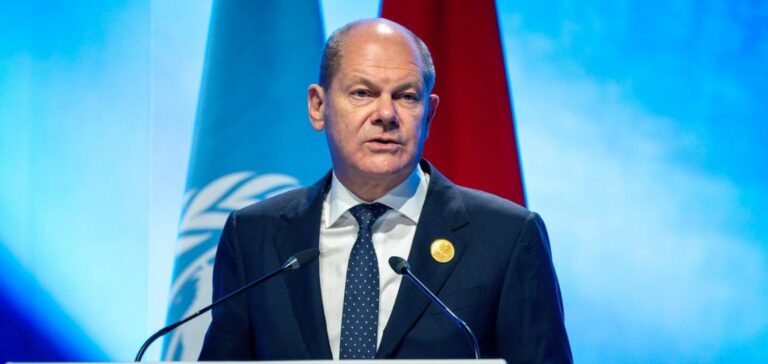German Chancellor Olaf Scholz firmly rejected any “global renaissance of fossil fuels” at COP27 in Egypt.
“There must not be a global renaissance of fossil fuels. And for Germany, I say: there won’t be either,” assured Mr. Scholz, whose country is one of the main European emitters of greenhouse gases, at the climate summit in Sharm el-Sheikh.
“For us, it is clearer than ever that the future belongs to wind power, solar and green hydrogen,” added the chancellor.
The Russian invasion of Ukraine and its impact on German energy supply has led Berlin to temporarily reopen coal-fired power plants.
But this is only a “short period”, Scholz said.
“We are determined to get out of coal,” said the social-democrat chancellor, who heads a coalition formed with the Greens and the Liberals.
The German government has decided to extend the operation of several coal-fired power plants until the spring of 2024, but the goal of phasing out coal-fired power by 2030 still stands.
For Mr. Scholz, the transition to renewable energies “is not only a climatic, economic and environmental imperative”, but also “a security imperative” illustrated by the German dependence on Russian energy.
“All this makes the central task of our time even more urgent, namely to limit global warming to 1.5 degrees,” argued the German leader, who aims “by 2045” to make his country carbon neutral.
“Every tenth of a degree less warming means less droughts and floods, less resource conflicts, less famine and crop failure, and thus more security and prosperity,” Olaf Scholz detailed.
The German leader also noted that developing countries, which are less polluting but often more affected by the consequences of global warming, “rightly demanded more international solidarity.
“We are ready to give them even greater support,” he assured, promising that Germany would increase its contribution to the fight against global warming in 2025 to 6 billion euros per year, compared to 5.3 billion in 2021.
“We will support the countries hardest hit by climate change to cope with the losses and damage,” he also announced, calling for the establishment of a “global shield against climate risks” that Germany would contribute 170 million euros.






















